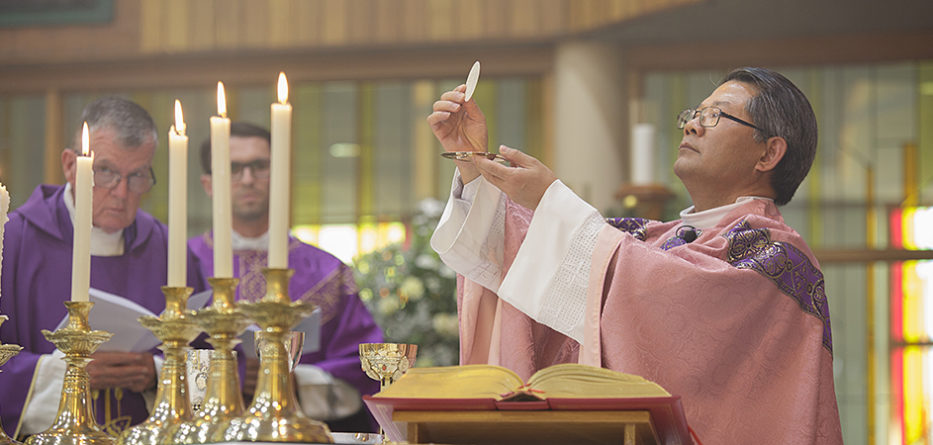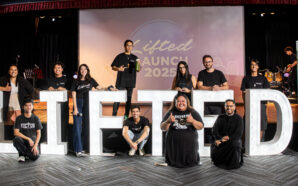Most Reverend Vincent Long Van Nguyen OFM Conv DD STL, Bishop of Parramatta
Homily for the Fourth Sunday of Lent, Year B
Readings: Chronicles 36:14-23; Eph 2:4-10; John 3:14-21
10 March 2024
Modelling on Jesus’ self-giving which is encapsulated by the cross
Dear friends,
We live in a world that is governed less by the common good and more by the self-preservation and self-interest. In the struggle of all against all, it is the weak, the poor and the dispossessed who are often rejected as walking companions. These could be foreigners, asylum seekers, people with disability or diverse gender. But if we are the people who are guided not by the default principle of self-interest but by the teaching and example of Jesus, we need to know about the paradox of living life to the full by self-emptying and self-sacrifice for the sake of others.
This is what Word of God for this 4th Sunday in Lent teaches us. As we move closer to Holy Week, the shadow of the cross looms large. In Jesus, we see a God whose modus operandi is the antithesis of self-preservation that is so prevalent in the world. The Christian response cannot be other than the way of Jesus’ self-giving which is encapsulated by the cross.
In the first reading, the Book of Chronicles speaks of God’s rather surprising and unexpected way. After decades of exile in Babylon, the people would be able to return to their homeland thanks to an unlikely hero, Cyrus the king of Persia. The prophet Isaiah even refers to Cyrus as God’s “shepherd” and God’s “anointed one”. It is an extraordinary acknowledgment of a foreign ruler. God indeed could use an unlikely instrument to bring about his plan for the people.
God’s plan, however, does not stop with the benign king of Persia and his policy of repatriation. The returned exiles are to form a renewed community of faith in their homeland. Their mission is not to make Israel great again by way of restoring the Jewish monarchy. That golden era had turned out to be an illusion. Success had made them blind to God’s purposes. Israel had drifted far from the covenant. The exile enabled them to unlearn the way of the world. They understood the paradox of being the smallest and weakest of all the peoples and yet of being chosen to be an example for all the nations. That example consisted in being a society in which the care of the most marginalized was to be its essential distinguishing feature. Thus, the rebuilding of Israel was fundamentally a conversion to the covenant.
In the Gospel, the victory of God through the cross is affirmed. In previous episode, Jesus challenged Nicodemus to “be born again” or to “be born from above”. Nicodemus was a person of social distinction, privilege and entitlement. Jesus’ challenge of being born again amounts to a conversion from self-entitlement to self-emptying. Being born again is being born free from the enslavement to sin and servitude, free from the shackles of self-made righteousness. It is to imitate the suffering, dying and rising process that Jesus was to undergo. It is a movement of letting go and emptying of love into others.
Quite unlike Matthew, Luke and Mark, the cross in the fourth Gospel is seen in the light of God’s ultimate triumph over the forces of evil and darkness. Hence Jesus alludes to the crucifixion as the hour of judgement and victory. “When I am lifted up from the earth, I shall draw all people to myself”. The cross is a symbol of God’s total self-giving. It is the essence of the great paradox that Jesus taught and lived: life is lived fully not by surrendering it to self-survival instincts but by giving all for the sake of others. It is no coincidence that we find Nicodemus at the crucifixion scene. Together with Joseph of Arimathea, he anointed the body of Jesus and buried him in the tomb. His journey of discipleship was solidified on Calvary. He was drawn into the mystery of suffering, dying and rising in Christ.
Dear brothers and sisters,
Today is called “Laetare Sunday”. We rejoice even as we move more deeply into the same mystery that Nicodemus was invited to enter. At the heart of this mystery is God’s love that finds supreme expression through the cross. It is the ultimate proof that God loved the world. Paul in the second reading speaks of the extraordinary generosity and the infinite richness of God’s love. In Christ, he goes on to say that we are God’s work of art that awaits further enhancement through the good life we are meant to live. We are inspired by the love shown in Jesus on the cross, the love that conquered the forces of evil and triumphed over all odds.
Lent is the time when we endeavour to live more intensely and purposefully the call to empty ourselves of all that prevents us from growing fully in Christ. Let us embrace and live the mystery of the cross. Christian life indeed is not about winning or staying on top of the social ladder. It is not about maintaining and defending the honours and privileges that we claim for ourselves. Rather, it is about giving ourselves to others even at our own cost, to accompany the most vulnerable, to serve at the liminal and precarious places, and to empower all to attain the dignity due to them as children of God. Despite the menacing power of sin and darkness, God’s Yes in Jesus triumphed on Calvary and will triumph in the fullness of time. May we walk humbly in the way of the cross and imitate the greatest love that it revealed.







